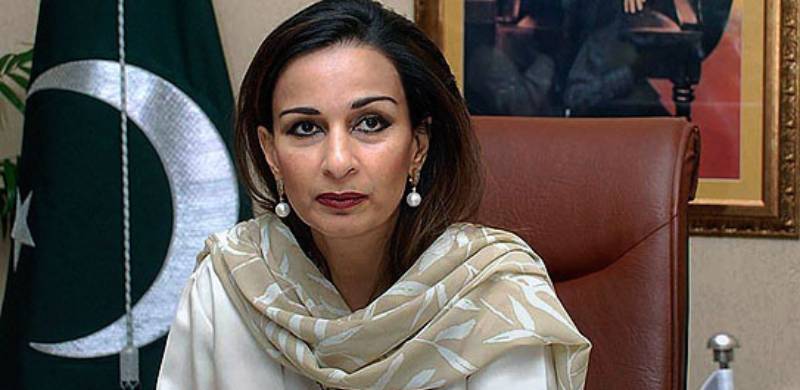
Senator and Federal Minister for Climate Change Sherry Rehman has said that women are at the forefront of and will be directly impacted by the 'furies' of climate change.
Speaking to the AFP, she said that women are the nurturers of the soil, crops and water, and therefore they will be at the forefront of climate change.
She also highlighted how there seems to be a total lack of empathy internationally for the climate crisis that Pakistan is facing. Pakistan contributes less than one percent to the global greenhouse gas emissions, however it ranks eighth on an index of nations most likely to be impacted the worst by climate change.
"There has been so much climate denialism internationally, with the big polluters not wanting to give up their bad habits or to pay the price for going green," she said. She added that the attitude seems to suggest that the problem is one that has been created internally, and thus must be solved internally also.
The minister, who also served as Pakistan's ambassador to the UN, said that it was also difficult to explain to people in this part of the country why the need to cater to the environmental crisis, that in all likelihood is being created in a separate part of the world.
"I'm going have to say, 'This is why you're able to breathe better. This is why you're able to have an environment that is not overheating. This is why your water is drinkable'," she said.
Speaking to the AFP, she said that women are the nurturers of the soil, crops and water, and therefore they will be at the forefront of climate change.
She also highlighted how there seems to be a total lack of empathy internationally for the climate crisis that Pakistan is facing. Pakistan contributes less than one percent to the global greenhouse gas emissions, however it ranks eighth on an index of nations most likely to be impacted the worst by climate change.
"There has been so much climate denialism internationally, with the big polluters not wanting to give up their bad habits or to pay the price for going green," she said. She added that the attitude seems to suggest that the problem is one that has been created internally, and thus must be solved internally also.
The minister, who also served as Pakistan's ambassador to the UN, said that it was also difficult to explain to people in this part of the country why the need to cater to the environmental crisis, that in all likelihood is being created in a separate part of the world.
"I'm going have to say, 'This is why you're able to breathe better. This is why you're able to have an environment that is not overheating. This is why your water is drinkable'," she said.

